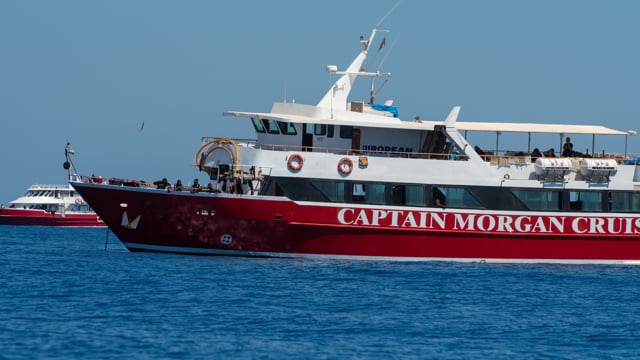[WATCH] From tourist ferries to water prisons: AFM keeps press away from Captain Morgan boats
MaltaToday drove to Hurds Bank to speak to the migrants aboard the Captain Morgan boats


MaltaToday was prevented from getting close to the Captain Morgan boats holding some 160 people from claiming their right to asylum, by the Armed Forces of Malta.
This newspaper was ordered to stay one nautical mile away from the boat on the same day that another boatload of migrants were taken aboard an AFM patrol boat.
So far only France and Portugal is offering to relocate some of the men held in detention at sea after the Maltese government started paying private boats to either take migrants back to Libya, in a clear case of refoulement, or to keep people on the high seas.
“The government has not provided a legal basis, or legitimate purpose, for keeping people on these ferries, making this arbitrary deprivation of liberty. It’s incredible that the Maltese government would hold these people captive on tourist ferries in miserable conditions for weeks to pressure other EU countries to take them,” said Judith Sunderland, acting deputy Europe and Central Asia director at Human Rights Watch.
“Concerns about COVID-19 and long-standing complaints, in part justified, about lack of fair sharing of responsibility can’t excuse this disgraceful behaviour.”
The people were rescued at sea between April 30 and May 7. On April 30, the Maltese government arranged for the transfer of 57 people rescued the day before by a private fishing vessel to the Europa II, a 34.75-meter tourist ferry boat owned by Captain Morgan Cruises Ltd. On May 7, an Armed Forces of Malta patrol boat rescued 45 people and coordinated the rescue, by a fishing boat, of 78 people.
While all 18 women and children were reportedly taken ashore, the other 105 people were transferred the same day to the Bahari, a 23.59-meter tourist ferry boat owned by the same company. That group was subsequently transferred, on May 15, to the Atlantis, a 39.6-meter ferry boat owned by Captain Morgan Cruises. These boats, all flying the Maltese flag, “are pleasure crafts designed for short tourist cruises and not to accommodate people for lengthy periods,” Human Rights Watch highlighted.
“The government has not stated whether this is a mandatory quarantine to limit the potential spread of COVID-19, nor is it clear if it has carried out any public health measures, such as testing for COVID-19, isolating anyone with symptoms, and enabling social distancing. Even if it were intended as a quarantine, both groups have been on these boats for longer than the commonly mandated 14-day period,” Human Rights Watch said.
On May 19, a man sent a Facebook post to the nongovernmental organization Alarm Phone, which runs a hotline for boats in distress in the Mediterranean, saying he is on board the Europa II and described the increasing despair in the “water prison.”
He said that some people had attempted suicide and that “anxiety, resentment, and depression have increased … this has made our health condition worse. Also due to lack of full health care, there’s been an outbreak of skin diseases … there is lack of care when it comes to food. Hunger strikes have started and we’re in a deplorable state. We have no means of communication to reflect our [condition] to the outside world.”
In a letter to the European Commission, Aditus Foundation, the Integra Foundation, and Jesuit Refugee Service Malta, said they are not aware of any effort by authorities to identify people with vulnerabilities or unaccompanied children, while no one on board has had access to lawyers, interpreters, or the United Nations (UN) refugee agency, UNHCR.
The Maltese government of Prime Minister Robert Abela has stated explicitly that it is keeping people at sea to pressure other EU countries to take them.
“Malta has clear responsibilities under international law to respond to boats in distress at sea, enact or coordinate rescue operations within its search and rescue area, and ensure timely disembarkation at a safe port,” Sunderland said.
“Under international law, restrictions may be placed on rights for public health reasons, but they must be proportionate, non-discriminatory, and based on available scientific evidence. The pandemic cannot justify abdicating rescue responsibilities or blanket bans on disembarkation, which puts the right to health of those on board at risk.”







.jpg)





.jpg)






.png)

